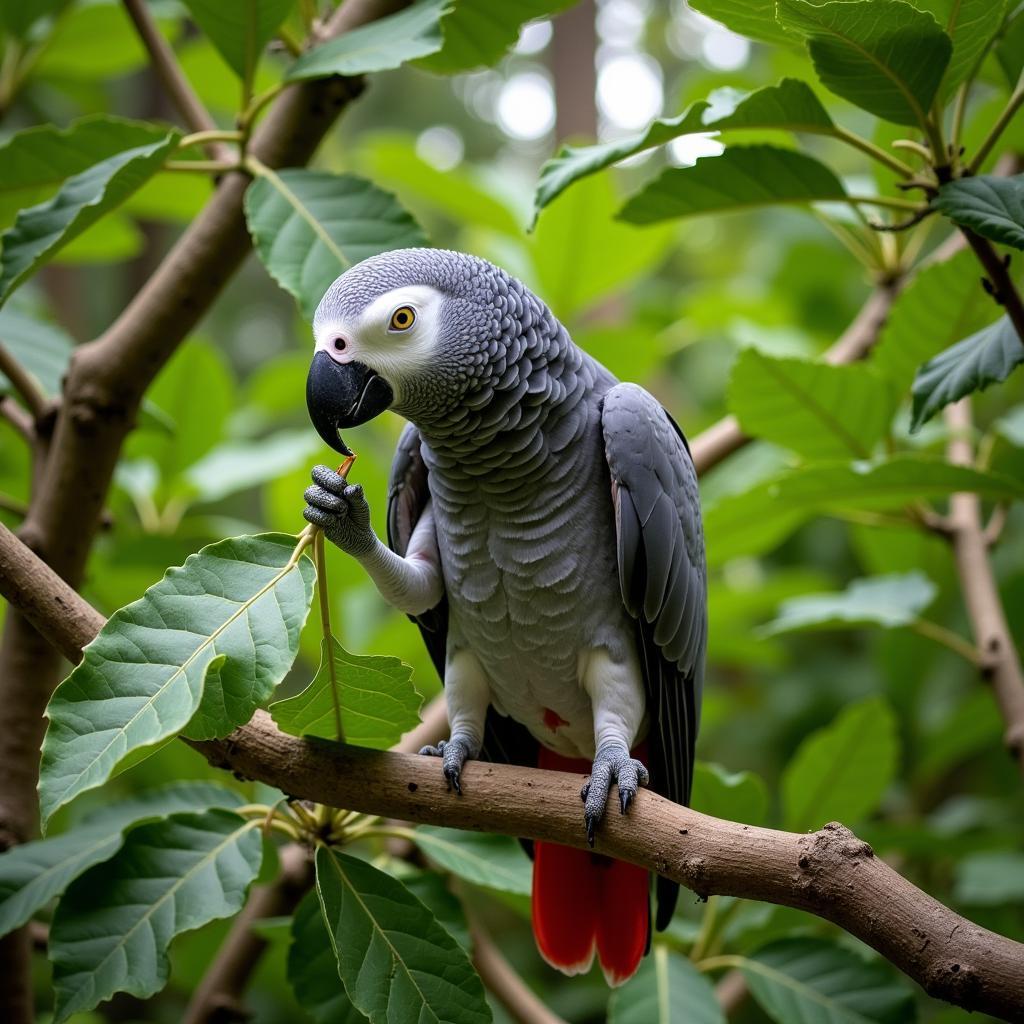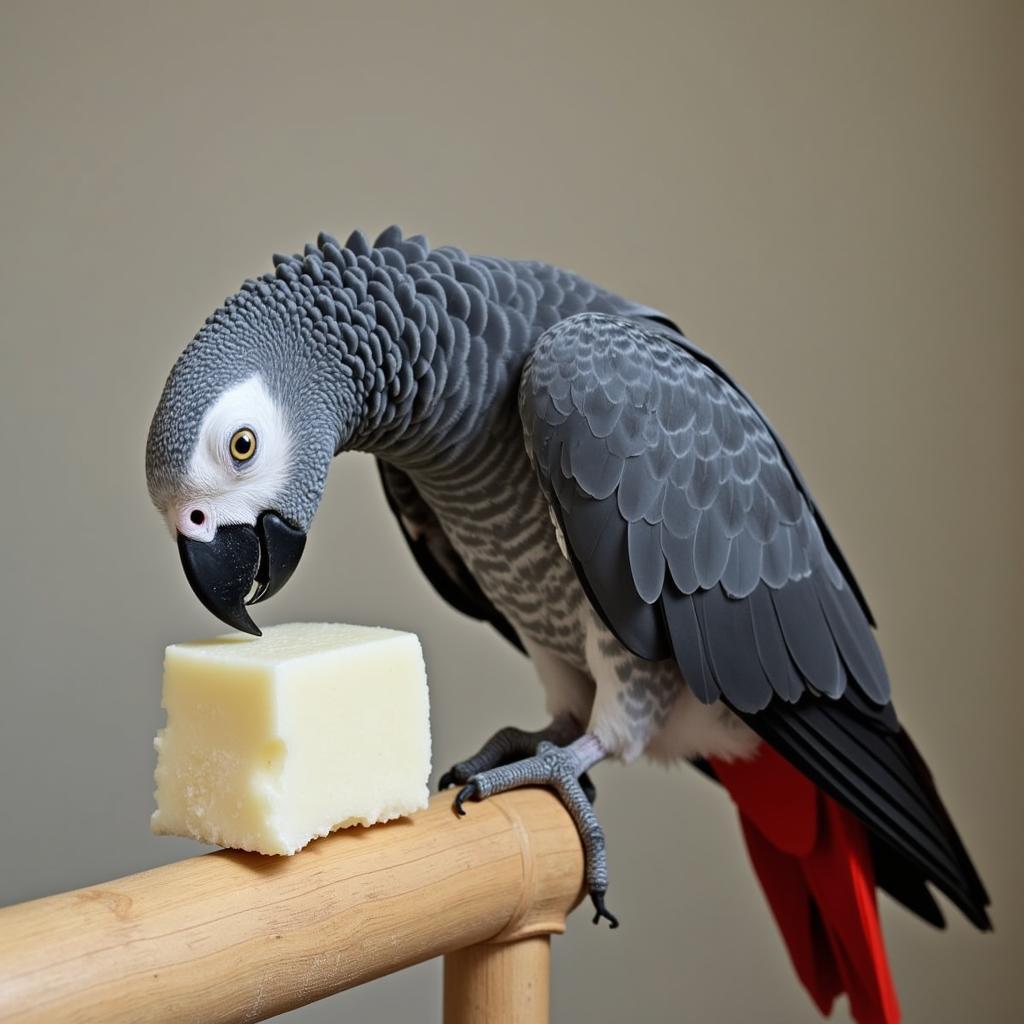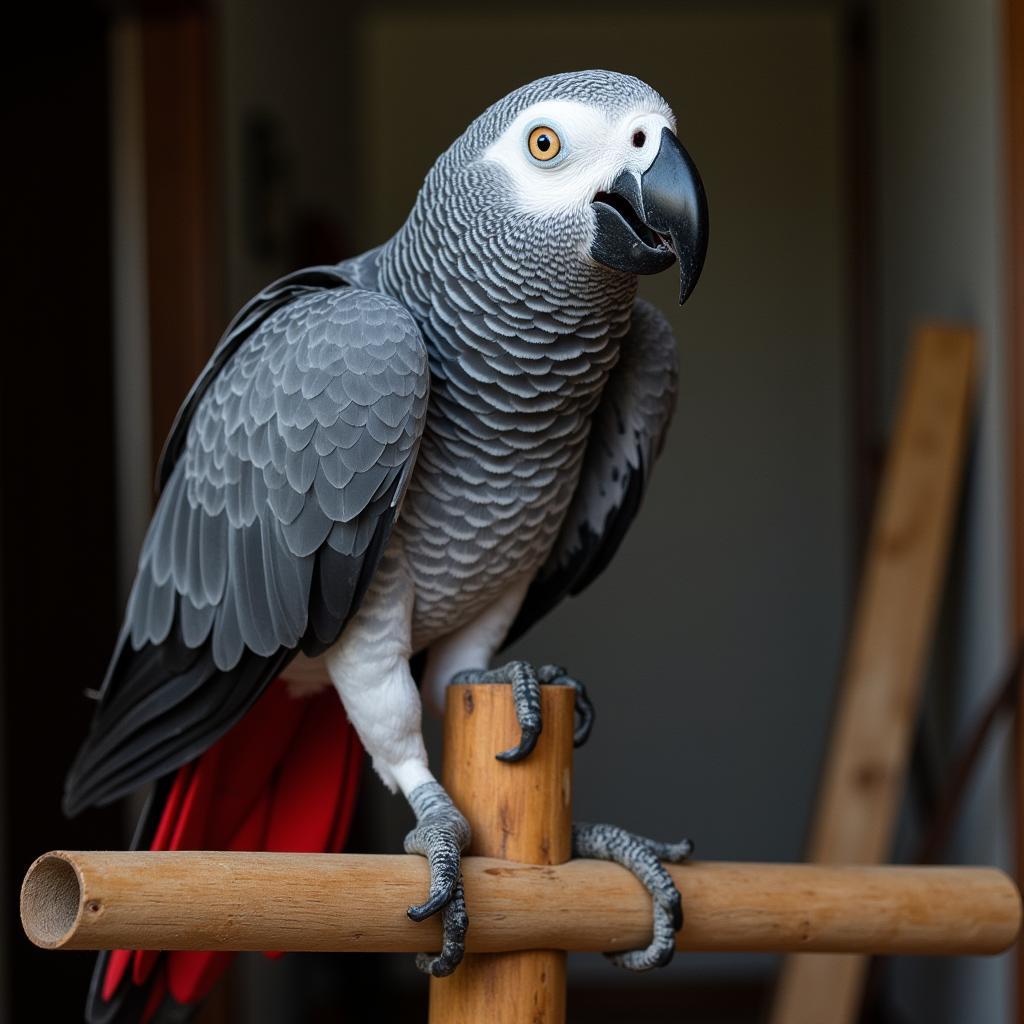African Grey Eating: A Comprehensive Guide
African Grey Eating habits are a fascinating subject for bird lovers and owners. Understanding their dietary needs is crucial for their health and well-being. This guide delves into the intricacies of what African greys eat in the wild and in captivity, offering insights into creating a balanced and nutritious diet for these intelligent creatures.
What Does an African Grey Eat in the Wild?
In their natural habitat across the forests of Central and West Africa, African greys primarily consume a variety of fruits, seeds, nuts, and vegetation. Their diet includes figs, palm nuts, berries, and leafy greens. They are also known to occasionally eat insects and snails, providing a source of protein. This diverse diet in the wild ensures they receive a balanced intake of essential nutrients. Check out resources on african grey parrot eating for more specific details.
A crucial aspect of an African grey’s wild diet is the foraging process itself. They spend a considerable amount of time searching for food, which provides mental stimulation and exercise. This natural behavior highlights the importance of enriching the environment of captive African greys with foraging opportunities.
 African Grey Parrot Foraging in the Wild
African Grey Parrot Foraging in the Wild
Feeding Your African Grey at Home
Providing a balanced diet for your African grey at home requires careful consideration. While seeds can be a part of their diet, they should not be the primary source of nutrition. A seed-based diet can lead to nutritional deficiencies. Instead, focus on a varied diet including high-quality parrot pellets, fresh fruits, vegetables, and healthy nuts. You can even explore setting up an african grey aviary to mimic their natural habitat.
Fresh fruits and vegetables should make up a significant portion of your African grey’s diet. Offer a variety of colorful options like apples, bananas, berries, carrots, and leafy greens. Avoid avocado, as it is toxic to birds. Introducing new foods gradually is important to avoid digestive upset. For further insights into creating a suitable home environment, consider researching an african grey home.
What Should African Greys Avoid Eating?
Certain foods are toxic to African greys and should be strictly avoided. Chocolate, caffeine, alcohol, and avocado are all harmful. Additionally, avoid processed foods, sugary snacks, and salty treats. These can lead to health problems like obesity and diabetes. Learning about african grey parrot eating habits will provide further guidance on what to avoid.
“A healthy diet is essential for the longevity and well-being of African greys,” says Dr. Avian Care, a renowned avian veterinarian. “Providing a varied and nutritious diet is crucial for preventing health issues and ensuring these intelligent birds thrive in captivity.”
Ensuring a Balanced Diet with Supplements
While a varied diet is the foundation of a healthy African grey, supplements can play a role in ensuring they receive all the essential nutrients. Calcium supplements are particularly important, especially for females during breeding season. Consult with an avian veterinarian to determine the appropriate supplements and dosage for your bird. You can find compelling visuals related to their diet at african grey parrot eating sun flower seed photos.
“Supplementation should be tailored to the individual bird’s needs,” explains Dr. Feathered Friend, an expert in avian nutrition. “A veterinarian can assess your bird’s diet and recommend the right supplements to address any potential deficiencies.”
 African Grey Parrot Eating Calcium Supplement
African Grey Parrot Eating Calcium Supplement
Conclusion
African grey eating requires careful attention to ensure these intelligent and social birds receive the nutrition they need to thrive. By providing a varied diet rich in fruits, vegetables, high-quality pellets, and appropriate supplements, you can contribute significantly to their overall health and well-being. Remember, understanding African grey eating is a key aspect of responsible bird ownership.
FAQ
- What are the primary foods in an African grey’s natural diet?
- Why is a seed-based diet not recommended for captive African greys?
- What are some toxic foods to avoid feeding an African grey?
- What are the benefits of providing foraging opportunities for African greys?
- What role do supplements play in an African grey’s diet?
- How can I introduce new foods to my African grey’s diet?
- Why is it important to consult an avian veterinarian regarding my African grey’s diet?
Do you have other questions about African Grey?
Here are some other questions you might have about African Grey parrots:
- What is the lifespan of an African Grey parrot?
- How much does an African Grey parrot cost?
- What kind of cage do I need for an African Grey?
- How do I train my African Grey to talk?
For more information and resources, please explore other articles on our website.
When you need assistance, please contact Phone Number: +255768904061, Email: kaka.mag@gmail.com Or visit our address: Mbarali DC Mawindi, Kangaga, Tanzania. We have a 24/7 customer service team.


